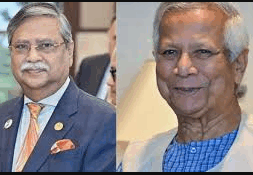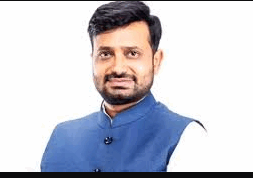
Roving Periscope: Russia-Ukraine war to redesign a New World Order, says IMF
Virendra Pandit
New Delhi: Fearing lower growth prospects worldwide, the International Monetary Fund (IMF) has predicted the Russia-Ukraine war could “fundamentally alter” the global economic and political order in the longer term.
The IMF officials are already considering lowering the previous forecast of 4.4 percent global economic growth in 2022, according to the media reports on Wednesday.
Ukraine’s Prime Minister Denis Shmygal, citing first estimates, said that rebuilding the war-torn country after the war could cost at least USD 565 billion.
The Russian invasion of Ukraine would affect the entire global economy by slowing growth and jacking up inflation, and could fundamentally reshape the global economic order in the longer term, it said.
The 21-day-old war has not only caused human suffering and poured millions of Ukrainian refugees into neighboring countries, but it is also boosting prices for food and energy, fuelling inflation, and eroding the value of incomes. Besides, it is disrupting trade, supply chains, and remittances in countries neighboring Ukraine, the IMF said.
The ongoing conflict also eroded business confidence and triggered uncertainty among investors that will depress asset prices, tighten financial conditions, and could spark capital outflows from emerging markets. “The conflict is a major blow to the global economy that will hurt growth and raise prices.”
The IMF expects to lower its previous forecast of 4.4 percent global economic growth in 2022 and revise downward even the regional growth forecasts.
Countries with direct trade, tourism, and financial exposures to the warring nations could feel mounting pressure. It also cited a greater risk of unrest in some regions, from Sub-Saharan Africa and Latin America to the Caucasus and Central Asia.
Simultaneously, food insecurity may further increase in parts of Africa and the Middle East, where countries like Egypt import 80 percent of their wheat from Russia and Ukraine, among the world’s top wheat exporters.
The long-term effects of the war will unfold in many countries. “The war may fundamentally alter the global economic and geopolitical order should energy trade shift, supply chains reconfigure, payment networks fragment and countries rethink reserve currency holdings.”
As the war rages on, the IMF predicted deep recessions in Ukraine and Russia. Europe could see disruptions in natural gas imports and wider supply chain disruptions. The impact in Eastern Europe, which has absorbed most of the three million Ukrainian refugees, could be severe, as it would see higher financing costs adversely affecting their own economies.
The IMF said countries in the Caucasus and Central Asia with close trade and payment systems links to Russia would also be more affected by the recession and the West-imposed sanctions, curbing trade, remittances, investment, and tourism.
In the Middle East and Africa, worsening external financing conditions may spur capital outflows and add to growth headwinds for countries with elevated debt levels and large financing needs, the IMF said.
Higher energy and food prices, reduced tourism, and problems accessing international capital markets would threaten countries in sub-Saharan Africa, which imports around 85 percent of its wheat supplies, with a third coming from Russia or Ukraine.
Food and energy prices are the main channels for spillovers in the Western Hemisphere, with high commodity prices likely to significantly quicken already high inflation rates in Latin America, the Caribbean, and the US.
In Asia, the biggest impact of the Russian-Ukraine war will be felt among oil importers of ASEAN economies, India, and frontier economies, including some Pacific Islands, while new fuel subsidies could ease the impacts in Japan and Korea.












